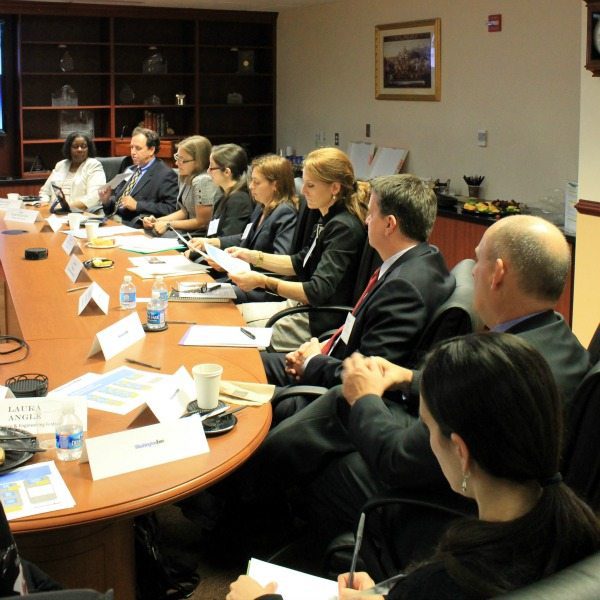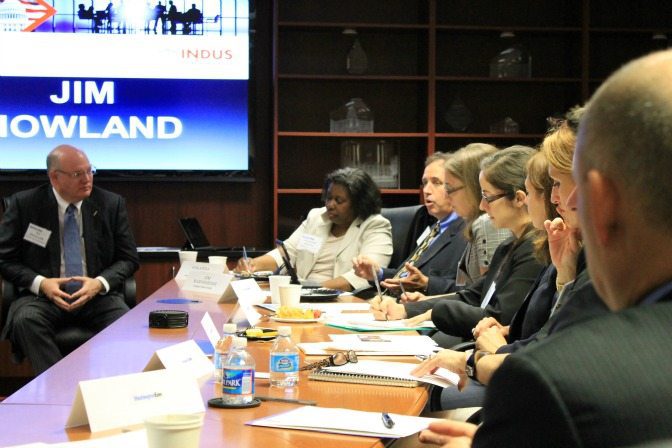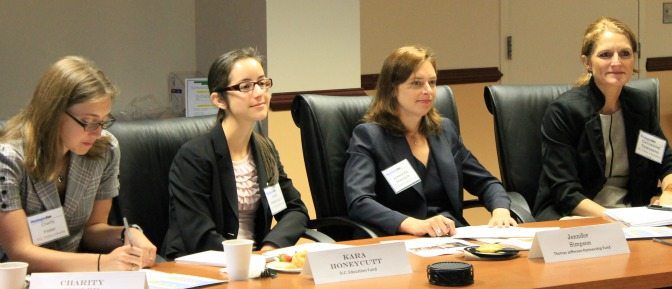 The WashingtonExec STEM Council’s inaugural meeting brought a crowd of 20 Thursday morning for a breakfast roundtable aimed at discussing ways in which the education foundations and industry can partner to increase the STEM pipeline and better meet the industry demand for STEM high school graduates.
The WashingtonExec STEM Council’s inaugural meeting brought a crowd of 20 Thursday morning for a breakfast roundtable aimed at discussing ways in which the education foundations and industry can partner to increase the STEM pipeline and better meet the industry demand for STEM high school graduates.
Council Chairman, Ed Swallow, Northrop Grumman’s Vice President for Business Development in the Federal and Defense Technologies Division, facilitated the panel discussion comprised of STEM passionate individuals representing Montgomery, Arlington, Fairfax County and D.C. public schools.
Panelists included Yolanda Pruitt, the Executive Director of the Montgomery County Public Schools Educational Foundation, Inc, Jim Egenreider, the STEM Education specialist for Arlington Public Schools, Catherine Townsend, the executive director for the D.C. Public Education Fund, Kara Honeycutt, the Fund’s portfolio director, Charity Fesler, who represented D.C. Public Schools, Jennifer Simpson, a Board member and co-chair of the Corporate Advisory Board for the Thomas Jefferson Partnership Fund, and Sloan Presidio, the Assistant Superintendent of Instructional Services for Fairfax County Public Schools.
Swallow opened the discussion by highlighting the existing disparity that exists in STEM literacy among public schools across the country. He said a focus on fifth and eighth graders would best advance the Council’s goal — to increase STEM engagement. Those years are the most critical for developing affinities for STEM, Swallow said, because it is when decisions about “tracking” for science, math or high achievement are made by teachers, parents and students themselves. Students not taking Algebra in the eighth grade cannot physically graduate in four years from a four year college, Swallow said.
“Today is about planting seeds and it is about starting relationships,” Swallow said, suggesting teachers must early-on introduce excitement about STEM to their students.
The seven panelists agreed that professional development of teachers, project-based and interdisciplinary learning are critical priorities that must be addressed in order to augment STEM performance across the board and increase the pipeline.
Attendees were specifically concerned that teachers should revise their methodology when approaching STEM teaching by facilitating student investigation of information instead of merely spoon feeding students the knowledge.
The next Council meetings will likely be more specialized and investigate issues such as driving STEM interest in minority groups, professional development and partnerships, among other topics.
The breakfast roundtable was hosted at INDUS Corporation headquarters in Vienna, Virginia.




